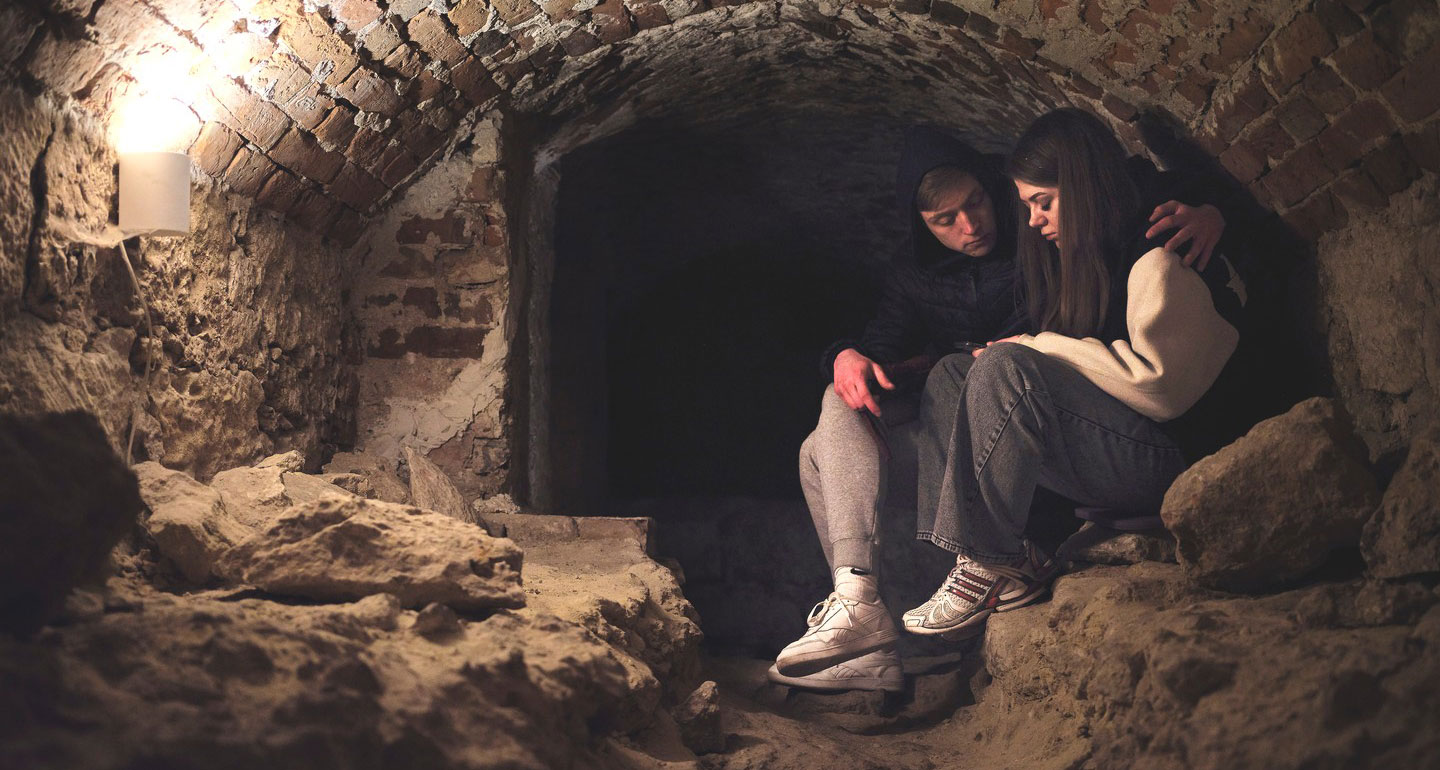
Since March 2022, Fondation Hirondelle, together with its local partner the Institute for Regional Press and Information (IRMI), has been implementing a multi-faceted project to support the Ukrainian media. The aim is to provide the population of the occupied territories and internally displaced persons (East and South-East) with access to reliable information on subjects of public, humanitarian and social interest, as well as content focusing on justice in relation to war crimes.
The editorial, managerial and financial reinforcement of 18 local media is the epicentre of a mentoring programme rooted in the realities of our partners, which enables us to continuously assess and respond to the priority needs of journalists and media managers. With one essential aim: their survival, by adapting their information mission to the existential constraints of war.
Financial volume 2023
1,133,251 CHF
Sources of funding
- Swiss Solidarity
- Fondazione aiuto alla cooperazione e allo sviluppo
- Fondation genevoise de bienfaisance « Valeria Rossi di Montelera »
- Fondation Philanthropique Famille Sandoz
- Switzerland (SDC – Core contribution)
- Private donations
Key figures for 2023
11 regions of Ukraine
96 media productions on war crimes trials
134 media professionals trained
18 media partners
95% training satisfaction rate
Context
The Russian invasion on February 24th, 2022 resulted in a takeover of the Ukrainian media in the occupied zones. By the end of 2023, eleven journalists had died in the course of their reporting duties on Ukrainian soil. And many others, in Russian-controlled territories and on the front line, are under serious threat. Helping these media to survive by adapting to the constraints of war remains a priority.
Helping Ukrainian media survive and cope with war
All of Fondation Hirondelle’s activities in Ukraine are geared towards providing a practical response to the needs of our partner media. In most cases, they have had to relocate their newsrooms, but they have been able to restore their work tools and resume their activities. The strength of the project lies in its flexibility, individual approach and responsiveness. This has led to the development of websites and Telegram channels for the print media, the introduction of training courses on managing the media in crisis situations, on processing open source data, and the training of new journalists who have just been hired by our partner media.
In 2024, Fondation Hirondelle, in conjunction with IRMI, wants to improve its response to the growing challenges of social cohesion in the communities most affected by the war. The plan is to provide tailor-made support to the Ukrainian media to enable them to respond to multifaceted challenges, so that people have access to reliable and useful content. The aim is also to maintain journalistic coverage of violations of international humanitarian law. This focuses on Ukrainian journalists’ coverage of the justice of war process, particularly the most serious crimes.
Priorities
- Improving the response to social cohesion issues
- Customised support for Ukrainian media
- Support for local media to reconnect with their audiences and information needs
Activities
- Editorial, managerial and financial support for local Ukrainian media
- Training partner media in managing their physical and digital security
Our impact
Each media outlet has developed and implemented its own institutional strategy, which has enabled them not only to continue to provide information, but above all to increase their audience figures, some by more than 40%.
All the journalists’ jobs that needed saving were saved. Although not all the men who left for the front were replaced, new media professionals were trained, reducing the additional pressure on media managers.
Testimonial
“There has been a big learning curve. We now master new editorial approaches, particularly digital, which has enabled us to continue working and providing independent information to our audiences in the territories occupied by the Russian army.”
Igor Novikov, journalist with Visti Snigurivshchyny (Snihourivka).
.

